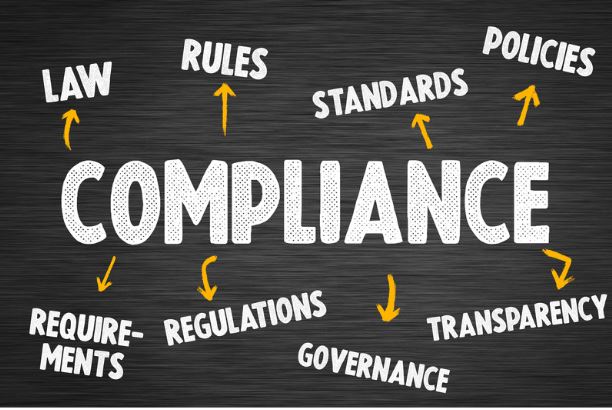
Global expansion is both a thrilling and complex journey for any business aiming to grow in today’s interconnected world. While expanding into new markets offers companies immense opportunities, it also introduces a maze of compliance issues that must be managed effectively to ensure smooth operations. From payroll and tax compliance to workplace safety and data protection, international growth brings a host of compliance challenges that can feel overwhelming, even to the most experienced corporations.
The Strategic Value of Global Expansion
Globalization has become essential for companies looking to remain competitive in a rapidly changing market. Expanding into new regions allows businesses to reach diverse customer bases, gain a competitive edge, and secure sustainable growth. International expansion also provides access to wider talent pools and new revenue streams, making it an attractive option for companies aiming to scale up. However, to reap the benefits of globalization, HR professionals must address an array of compliance challenges that come with operating across borders.
Remote HR Services as a Strategic Asset in Global Expansion
For companies operating in multiple countries, remote HR services have become indispensable. These services provide crucial support for managing international HR functions, including payroll, benefits administration, and legal compliance. Remote HR solutions allow companies to access localized HR expertise without establishing a physical HR presence in every market, which can save time and costs significantly. With Vurke’s specialized remote HR services, businesses can manage compliance effectively, ensuring a smoother and more compliant entry into global markets.
Choosing the Right Mode of Entry: Direct Investment or Partnerships?
Selecting the most suitable mode of entry is one of the first and most important decisions for any company expanding globally. Some businesses opt for direct investment, such as establishing subsidiaries or branches, which gives them greater control but requires extensive compliance measures. Alternatively, companies may choose to partner with local firms, reducing their compliance burden but also sharing control over operations.
HR professionals play a vital role here by evaluating the compliance implications of each entry mode. They must consider employment laws, compensation regulations, and labor practices in the target market to ensure compliance from the outset. By working with Vurke, HR teams can gain insights into the compliance requirements for different entry modes and develop a compliant expansion strategy.
Global Hiring Compliance: Navigating Labor Laws and Cultural Nuances
Global hiring introduces HR professionals to a variety of labor laws and cultural expectations that differ from one region to another. In some countries, standard working hours may differ significantly from what companies are accustomed to, or local laws may mandate specific benefits. Crafting compliant employment contracts that reflect local labor laws is essential for avoiding potential legal issues.
Cultural nuances are also critical in hiring. Different regions have varying norms around recruitment, leadership styles, and workplace hierarchy. HR teams must be sensitive to these differences to foster an inclusive and productive work environment. Human resources management, supported by expert insights from Vurke, can ensure that contracts, compensation structures, and workplace policies are aligned with local standards and cultural expectations.
Payroll and Tax Compliance in Multiple Jurisdictions
Payroll and tax compliance are among the most challenging aspects of global expansion. Each country has distinct regulations for tax contributions, social security, and employee benefits. Non-compliance can lead to fines, delayed payroll, and complications with local authorities. HR professionals need to stay informed about tax laws in each country of operation, ensuring accurate payroll processing and timely tax contributions.
Using advanced HR technology can ease these challenges. Automated payroll systems can reduce the risk of errors and ensure compliance with regional tax regulations. Additionally, working with remote HR services providers like Vurke enables companies to manage payroll and tax compliance efficiently, with localized expertise that minimizes risk.
Data Protection and Privacy Compliance Across Borders
In today’s digital age, data protection has become a top priority, especially with the implementation of the General Data Protection Regulation (GDPR) in the EU. Companies handling employee and customer data across borders must comply with GDPR and other local data protection laws. This includes securing data storage, ensuring transparent data handling practices, and managing data transfers across countries.
For HR professionals, data protection compliance involves securing employee records, monitoring access to sensitive information, and adhering to regional privacy standards. Companies should have robust data protection measures in place, including regular audits and security protocols, to safeguard against data breaches.
Maintaining Workplace Safety Standards Internationally
Workplace safety is a universal concern, yet safety regulations vary greatly between countries. HR professionals must understand and implement the necessary workplace safety measures in each region, including training employees on safety protocols and providing appropriate safety equipment. Non-compliance with local safety laws can result in legal consequences and harm a company’s reputation.
Remote HR services can be an invaluable resource here, providing HR professionals with insights into local safety regulations and ensuring that global teams operate in safe and compliant environments. Compliance with workplace safety standards fosters a culture of responsibility and enhances employee well-being.
Conclusion
Navigating compliance challenges is crucial for companies aiming to grow globally. With the right support and resources, like those offered by Vurke, businesses can overcome these challenges, hire international talent smoothly, and achieve sustainable growth in new markets. By understanding and addressing the complexities of global compliance, companies can unlock the full potential of international expansion while minimizing risks.

